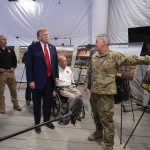European leaders have convened historic emergency talks following US President Donald Trump’s threats to withdraw longstanding security guarantees. Since taking office, Trump has suspended military aid and intelligence sharing with Kyiv and questioned the US commitment to NATO’s collective defense.
With Russia’s war in Ukraine escalating, European leaders, including French President Emmanuel Macron, recognize an existential threat to the continent. As a result, the European Union (EU) is urgently reassessing its defense strategy and preparing for the possibility of securing itself without American support. Ukrainian President Volodymyr Zelensky joined the Brussels meeting, signaling the urgency of Europe’s involvement in shaping peace efforts.
EU Strengthens Defense Strategy Amid NATO Uncertainty and Growing Russian Threats
At the Brussels summit, EU leaders agreed on measures to strengthen European defense, including a financial package potentially mobilizing up to 800 billion euros ($862 billion). Part of this package includes 150 billion euros ($162 billion) in loans for military expansion.
European Commission President Ursula von der Leyen described this moment as a turning point, emphasizing the need for Europe to become more self-reliant in defense matters. Additionally, Macron announced that Ukraine would receive more than $33 billion in aid sourced from sanctioned Russian assets. EU leaders acknowledged that Russia’s actions pose a direct challenge to European sovereignty, reinforcing the necessity of strategic autonomy in defense.

Trump’s statements questioning NATO commitments have alarmed European allies. NATO’s collective defense clause, Article 5, guarantees that an attack on one member is considered an attack on all. However, Trump insists that countries not meeting defense spending targets should not expect US military support.
This shift in US policy has raised concerns about weakening Western security structures. NATO Secretary General Mark Rutte reaffirmed the alliance’s importance, stressing that transatlantic cooperation remains critical. Meanwhile, Kyiv’s ambassador to the UK, Valerii Zaluzhnyi, warned that the US is undermining the world order and potentially emboldening Russian aggression in Europe.
Europe Seeks Role in Peace Talks Amid Geopolitical Uncertainty and Security Concerns
As Europe rallies behind Ukraine, leaders insist that any peace negotiations must involve the EU. A nearly unanimous declaration from Brussels emphasized Ukraine’s sovereignty and territorial integrity as non-negotiable elements of any ceasefire. France’s Macron proposed a one-month ceasefire covering air, sea, and energy infrastructure, but he cautioned against a rushed agreement.
Zelensky outlined his own conditions, including an end to Russian airstrikes and military operations in the Black Sea. His upcoming visit to Saudi Arabia aims to present a preliminary peace framework, with discussions also expected to involve US officials.
The prospect of a European-led security framework has sparked mixed international reactions. Russia dismissed the ceasefire proposal, labeling European peacekeeping efforts as unacceptable. Meanwhile, China suggested that Europe reconsider its past policies amid Trump’s assertive stance toward the continent.
The absence of key NATO allies such as the UK and Turkey at the summit also raised questions about broader international coordination. British Prime Minister Keir Starmer signaled a willingness to deploy troops in Ukraine to support a potential peace agreement. As geopolitical dynamics shift, Europe faces a defining moment in securing its future defense and diplomatic strategy.


